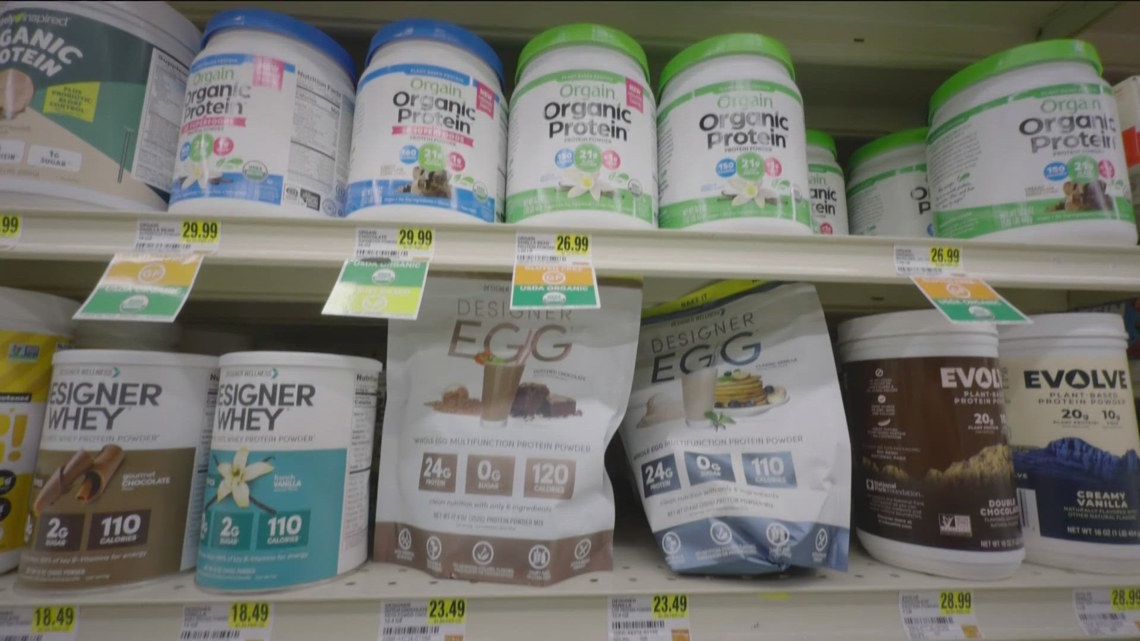There’s a protein push. It’s added to everything these days —from pancakes to latte foam —but has anyone stopped to ask, “Do we really need all this protein?”
GOLDEN VALLEY, Minn. — It’s almost impossible to find an edible product right now that has not added protein to its contents. Everything from pancakes to Pop-Tarts and pretzels now boasts the protein boost you get from eating them. And you’ll find no shortage of protein experts on the internet. A quick search of Instagram or TikTok will reveal endless recipes and tips you didn’t even know you needed.
It’s obvious protein is having a moment, but has anyone thought to ask, do we really need all this protein?
“I’d say it’s very rare for me to see someone that’s under-eating protein,” says Park Nicollet Registered Dietitian Ryan Weiler.
While most of us are getting enough protein in our regular diet, he says it’s the variety and when it should be consumed.
“Our animal-based products, they’re going to have different vitamins, minerals like iron, zinc and say beef, and then thinking about plant-based proteins, you’re going to get different antioxidants and fiber. So just try to mix and match,” he says.
The guideline is 0.8 grams of protein per kilogram of body weight, but who really deals in kilograms? So Weiler says your weight in pounds divided by 2.2. So, if you weigh 150 pounds, that’s about 68 grams of protein a day. But make sure you are getting it throughout the day at every meal. Can you eat too much protein? Weiler says if you don’t have kidney disease, most of us can handle a high-protein diet. And its benefits are huge. Protein helps build muscle, but it’s also good for hair, skin, nails and all the enzymes in our bodies. And it’s important when you are trying to lose weight, too.
“I think a lot of folks just with their health goals are making protein much more of a priority and the marketplace is just kind of meeting where they are at,” says Weiler.
Minnesota is also trying to make protein a priority.
“We expect that global demand for protein will rise by 50% by 2050,” says Joanne Berkenkamp with MBOLD protein Catalyst. MBOLD is A coalition of big food and Ag companies like General Mills, Schwan’s, Target, Cargill and the University of Minnesota.
She says it’s not just consumer demand here in the U.S. driving this. As the global population grows, so will the need for protein, which will put a strain on our land, water and climate.
“Our aim is really to create scalable, sustainable solutions for proteins that will benefit farmers, consumers, businesses, and the environment over the long term,” she says.
A tall task, but she says Minnesota is already a leader in producing protein, so now it’s time to be the leader in sustainability.

